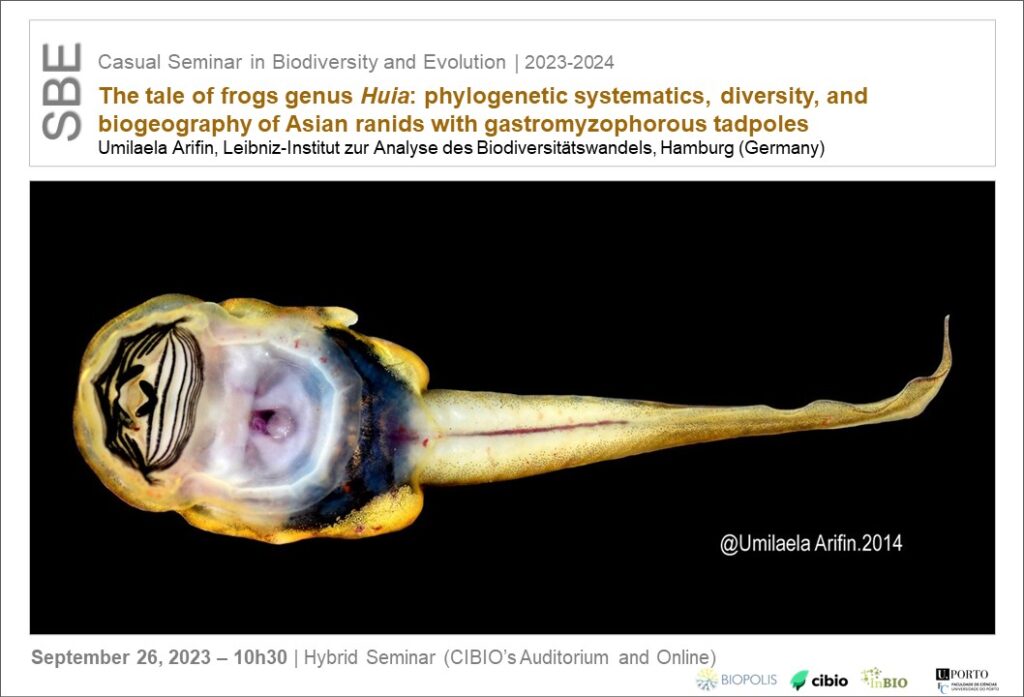Umilaela Arifin, Leibniz-Institut zur Analyse des Biodiversitätswandels, Hamburg (Germany)
September 26, 2023 | 10h30 | Hybrid Seminar (Zoom Link: https://fc-up-pt.zoom.us/j/85081829088)
The systematics and phylogenetic relationships of Asian ranid frogs of the genus Huia has been unstable for decades and has not been convincingly resolved. Prior to my study, five species (H. cavitympanum, H. masonii, H. sumatrana, Huia modigliani, and H. melasma) were recognized under the genus Huia. However, none of available studies suggested that Huia is a monophyletic group and provided adequate systematics solutions, leaving the genus to languish in classification that is evolutionary incoherent. In my study, I generated the most comprehensive taxon sampling of Huia via extensive fieldwork and museum loan. Under the framework of integrative taxonomy, my analysis (of molecular and morphological data of adults and larvae) revealed that Huia is a paraphyletic group, which corroborates the previous hypothesis. The type species H. cavitympanum was recovered as the sister lineage to the genus Meristogenys, while the remaining members of Huia formed a monophyletic group that was sister to the Bornean clade (H. cavitympanum+Meristogenys). Although my study did not change the phylogeny of Huia frogs, my analyses: (i) disclose multiple highly divergent, undescribed lineages of ranids with gastromyzophorous tadpoles in Sumatra and Java; (ii) confirm the tadpole of Huia melasma; (iii) provide evidence to justify the retention of the genus Huia and to erect a new genus to accommodate the remaining members. In general, my study highlights the importance of expanded geographic sampling and the utility of tadpole morphology to diagnose lineages that are otherwise hard to differentiate as adults.
More information here
